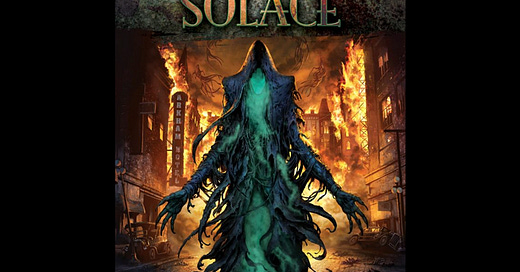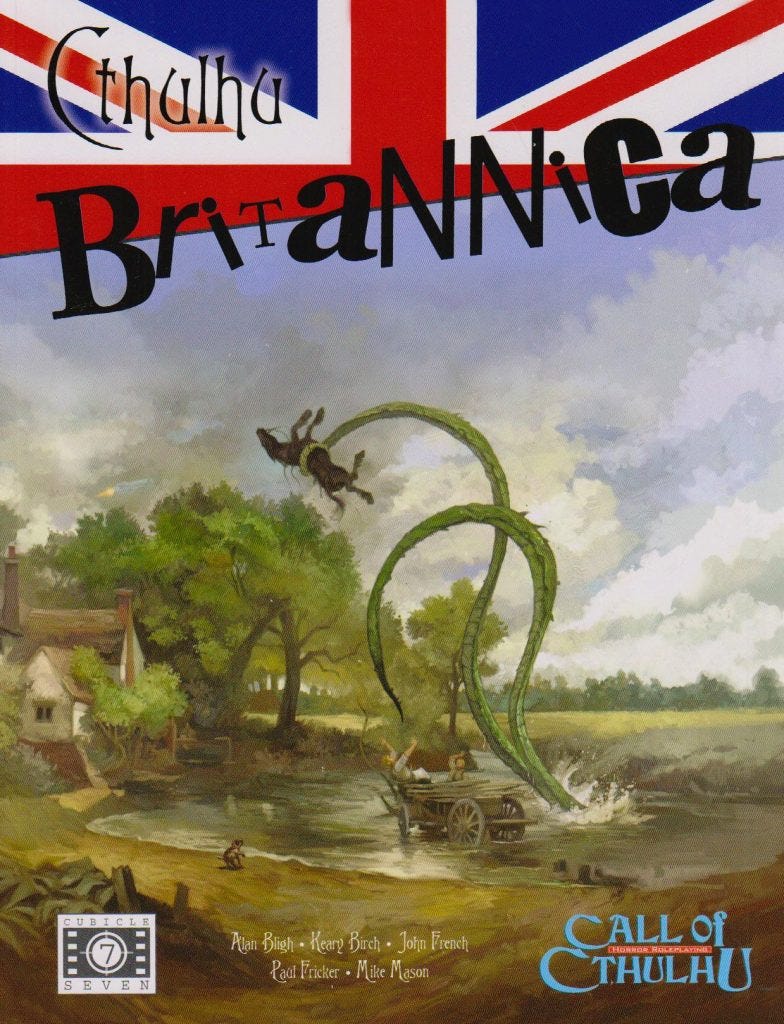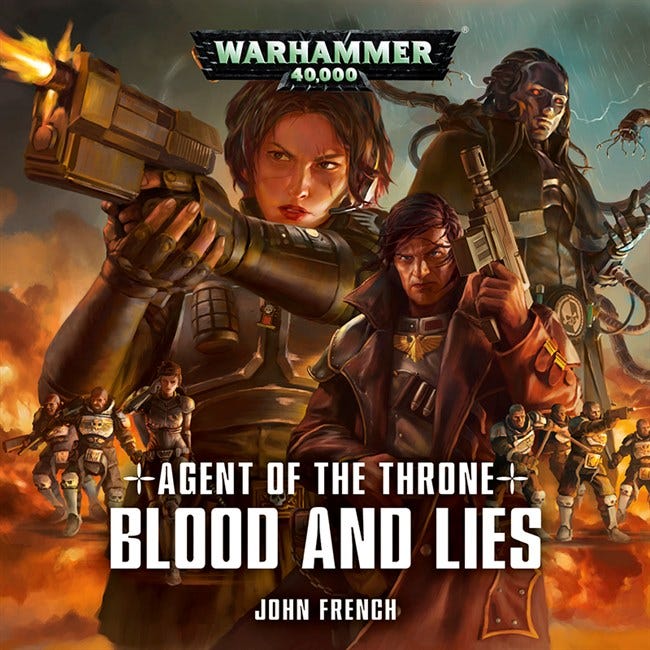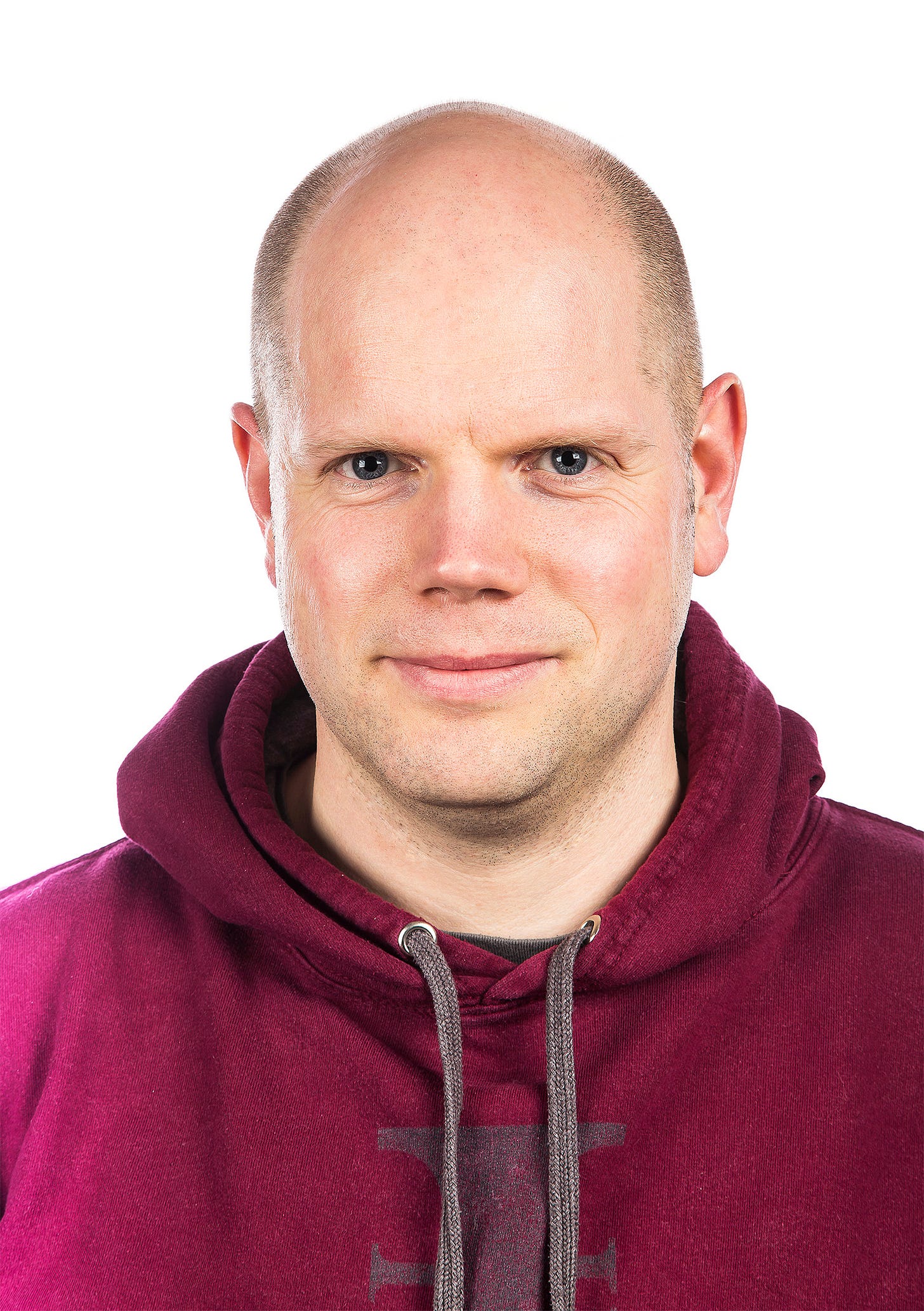Postcards from the Edge of Somewhere: An Interview with Fantasy Author John French
The award-winning author, scriptwriter and games designer talks craft, getting published and staying focused, as well as revealing his new creator-owned fantasy project 'Letters from an Unknown Land'

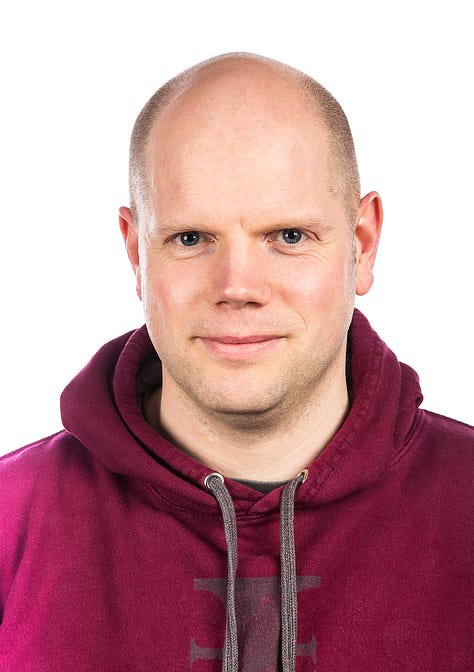
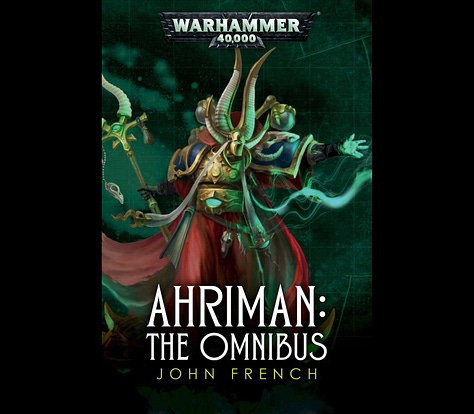

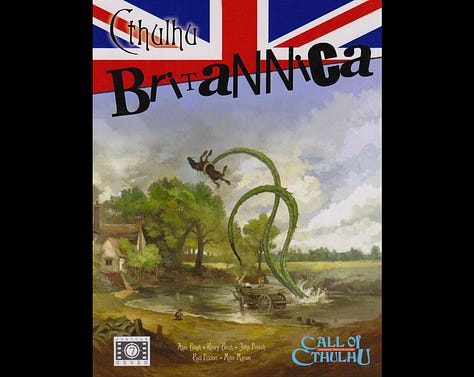

Hey, John! Thanks so much for agreeing to do this Q&A. Who am I kidding? I’m bloody delighted to have you do all the heavy lifting for this article! First off, can you please tell our readers who you are, what you write and what you’ve written?
I’m a writer, script-writer and sometime games designer. Basically, I write novels and short stories, scripts for TV, video games, and audio dramas, and just occasionally something involving the rolling of die and playing of cards. A lot of my work has been for Warhammer, including novels for the Horus Heresy series, but I’ve also done work for the Call of Cthulhu RPG, and novels for Arkham Horror, Sherlock Holmes, and sundry other writerly things.
So, what do you say at parties when people ask what you do? Do you do what I do and look at your shoes like a schoolboy caught smoking behind the bike-sheds and mumble ‘I write stuff…’?
I grin and say, ‘I’m a writer’. No sheepishness involved. That I get to do this is quite a surprise to me, and a huge privilege. Saying it aloud always gives me a spark of pleasure. As does the ‘What? Really?’ reply that follows.
And do you write part-time or full-time? Are you freelance?
I’m full-time, but have been part-time too.
How long have you been writing professionally?
[counts slowly on fingers…] About seventeen years.
And how difficult was it for you starting out?
It was both tricky and not, to be honest. A lot of my experience of becoming a writer is that I did one thing and then another and another. It didn’t all happen in one go.
My first professional writing job was doing some work on pen and paper RPGs. That was hard because, even though I’d been writing for fun, I had to persuade someone that I could do it professionally. It was also my first encounter with edits, re-writes, cutting word count, and notes. And there were *a lot* of notes. ‘Do it again and at half the length’ was the drift. That was pretty overwhelming on something I’d already sweated hard over. But I got it done and that led to more – slightly bigger things done faster, and then to other things.
That first credit was the most difficult, but once I had it, I found the next gig came easier. I didn’t have to persuade as much, because the published work abbreviated that part of the discussion. That seems to hold true at each stage of doing more: you do one thing, you do another thing, and – as long as you keep going – it carries you along until you’re quite a way from the start.
How did the writing market change for you as you got more credits under your belt? I’m thinking in terms of getting projects published, relationships with editors, cultivating a readership, self-confidence, learning your craft, short-cuts, etc?
Ha! Good question. Several long answers…
I’ve found that getting work and getting published is much easier if I’ve worked in that area before. If I haven’t worked in that area before, it’s mildly easier than having no experience but not much. It sounds weird, but I’m sure many writers will know what I mean.
If you work in sci-fi and fantasy, for example, it’s not that easy to get a literary crime novel published. Comic editors and audio producers want you to have credits and experience in that area. For example, you can be a veteran novelist and a neophyte screenwriter. Credits and experience often get you leads and conversations, which are invaluable, but they don’t necessarily translate into publication.
A long time ago, I assumed that once you were a published writer, doors sort of flew open. But the reality is that some do and some don’t. So you can end up in a corridor of your own success. Of course, the fun is to go up to various closed doors and give them a shove!
With editors and publishers with whom I have an established relationship, it’s much more of a dialogue. We know each other, and so I think there’s an openness about ideas and thoughts. The real fun is in this kind of developed, creative relationship where you can throw out ideas that might be terrible without fear that you’ve just blown a hole in the bottom of the boat. Likewise, you trust the opinions and instincts of editors that you’ve worked with a lot. It makes it a lot easier for them to say ‘er… no, John,’ and for me to appreciate them catching me before I step into a hole.
And so what about learning your craft and discovering those short cuts?
I’ve honestly found that my reliance on past lessons has just got deeper. I learnt on the first novel I wrote that you could plot and plan down to the section break, but it's not going to work like that on the page. The map can’t be the territory; it’s just a map. It’s there to help you get where you're going, but you have to walk those paths and cross those rivers. The map can be wrong. Similarly, I learnt on an early project that there are times when you need to listen to the doubts in your head, and a lot of time when you shouldn’t.
I don’t think I’m doing anything fundamentally different to what I was doing fifteen years ago. I’m just more tuned into the signals of what’s going on in the process. I can orientate myself faster. I have tools I can use to try and find different paths or get back on track. That’s were confidence comes in, I think. I honestly go into every project a bit scared that I’m going to muck it up, but I recognise that feeling. It's the same type of feeling as it was all the other times I get going. If the feeling is different then I stop and ask why. Same with the dreaded two-thirds-in panic, which happens with every book with 100% predictability. So, while I’m scared and I worry and panic as much as when I started out, I’m aware that I can deal with most of what will happen because I’ve walked similar paths before.
Describe your ideal working day. Either that or a typical one…
A typical day… Coffee. It all starts with coffee. At least three cups. I make some notes about what I need to do, sip more coffee, watch the clock as it moves to nine. Then I usually mutter something like ‘right, let’s get going…’ and wander up to my office, sit down, start up the computer and open what I’m working on. I try and work through until noon or so, have lunch, and go for a walk. I listen to a lot of podcasts and audiobooks. Then back to the desk and work through until somewhere around 6pm. Then I shut everything down.
There’s also a lot of undirected work-time, times when I’m half-thinking about an idea or a problem, reading, listening to things, talking about ideas. That’s going on most of the time I’m awake.
How do you stay focused?
Routine, habit and occasional self-trickery. Willpower can work for short bursts, but it gets exhausting. So rather than rely on willpower, I use habit and routine. I try to start my day at the same time, and by ‘start my day’ I mean sit down in the chair with the work open in front of me and my fingers on the keys. If I can do that then I tend to start writing, and once I start it’s easier to keep going. When I’m really struggling (and from my experience, everyone struggles), I lean on that routine rather than trying to focus. Oh, and I shut off the internet, because it’s a distraction engine!
Do you use plot paradigms like Save the Cat, the Hero’s Journey, or Lester Dent’s Master Plot (which Michael Moorcock still swears by, apparently)? What’s your general feeling about that sort of thing?
Honestly, I love them! I love studying them. Do I always use them? No. Have I used them? Yes. But rather than building a story to fit them, I find they are best as a kind of structural integrity check for a story, or a diagnostic tool for problems. Not feeling a character? Did I show the home, work, and play of their lives in the first part of the story (Save the Cat Strikes Back)? Lacking pace early on? Did the principal characters leave the world as they knew it, if possible, physically (Hero with a Thousand Faces)? They’re very useful up to a point, and that point is when you understand how they work. Then you break their rules with murderous intent.
How long do various projects take to write and how many hours (on average) are you putting in every day?
It varies so much. There are projects that take twice, or three times as long as their word count would imply. Planning, research, feedback, solving problems all can add to time. That being said, I aim for two to three thousand raw words a day.

You’ve recently branched out into a new creator-owned fantasy project called ‘Letters From An Unknown Land’. You’ll do a much better job of describing it than me, so what’s it all about?
It’s kind of difficult to put into a pitch line, but here goes. It’s a set of letters sent between people in a fantasy world that build both the story and the world, and it’s a world where things have gone wrong, where magic and disaster have overturned the old order and everything is in a flux of now.
‘‘I don’t like ’em but their ways bring in a catch. What can you say to that?’ Horek does not meet my eyes while he talks. He is old, his skin tanned and fissured by the sea which he watches while he talks to me. Its surface sits under a layer of cloud, flat and grey. Down by the shore Horek’s boat sits high on the sands, its painted feathers flaking, the eyes on its prow veined with cracks. Wooden carcasses of other boats lie next to it, their planks slowly turning to rot. Horek’s fingers go to the copper feather at his neck, and he spits towards the water.
A row of black-hulled boats sit further along the sand. Each of them is the same shade of pitch, and their ropes are sun-bleached hemp. A fish is pinned to the prow of one craft. The flesh is still clinging to the bones, untouched by carrion. Horek does not look at the black boats as he works.
‘Times change, so do gods, perhaps.’
Horek is not the last of his kind, but he could be excused for thinking so. Passing down this coast ten summers ago the beaches were bright with the hulls of painted boats. Every village glittered with ropes of copper feathers and shards of sea glass hanging beside drying fish. The first boat that went to sea each morning poured a bowl of blood and fresh water into the sea. Now most of the villages are half-deserted, and the colours of the old ways are disappearing along with the painted boats. To Horek there is one reason for this change.
From ‘New Gods, Old Sins’
‘Letters’ puts me in mind of Simon Stålenhag’s world-building project ‘Tales From The Loop’. Your stories feel similarly meditative and atmospheric and intriguingly fragmented. Each letter focuses on some specific tradition taken up by the survivors of this mysterious cataclysm. It infers that the travelling letter-writer’s patron is out there surveying what’s left of the world, picking up the pieces for reasons unknown. Like Stålenhag’s paintings, I really like what you don’t spell out – because that’s what engages the reader’s imagination and draws you in. You’re also building a bigger picture of this strange and broken world one piece at a time. Am I completely off the mark here?
You’re absolutely on the mark! I love Simon Stålenhag’s work, and that is very much what I’m going for. Various other influences being the horror anthology podcast The Magnus Archives, Ken Burn’s The Civil War, and the BBC’s From Our Own Correspondent. It’s a tricky balance because I do want to peel back the layers, but I also love letting the gaps do a lot of the work. There are several turns that I also want to make to keep things growing in unexpected ways.
Do you have this world all planned out in advance? Or are you just writing and seeing where Kallik takes you?
Sort of both. I don’t have it planned out, but I do have things I want to show in the series. Sometimes I’ll just let the writing show me something new. A phrase will pop up in my head and I’ll let the story grow around it. Growing in Stone was like that. The phrase ‘the houses of the dead do not belong to them’, acted as a seed for the whole story.
So why start this project and why now?
Part of it is the creative itch. I wanted to do something totally new and unfiltered by publishers and the other considerations that normally go into commercial publication. It’s not the kind of thing that fits a publishing paradigm. It’s serial, but not upfront with what it’s doing. It gives the best experience through careful reading and paying attention, rather than being fast and disposable. It’s also perfect for a website that has a direct author-to-reader relationship. So when I updated my website, I decided that now was the time to expand it and put it out there.
How do you find the time to write a personal project like this in between all your paid work?
I was talking about this with the amazing George Mann recently, and the best way I can put it is as a ‘word tax’. For every day I do paid work I have to pay myself a tax of a hundred words. I pay the word tax and eventually it adds up without causing too much discomfort.

What was the first most important lesson you learned about writing?
Endurance is everything.
Writers never stop learning, right? Whatever level of expertise they achieve. So what is the most recent lesson that you’ve learned about writing?
I had a short story recently that went wrong. As I was picking through the debris of it, I realised that I knew it was going wrong as I was working on it. But I pressed on because I’d done a lot of short stories and I thought it would be fine. But it wasn’t, and the reason was because I’d not applied all the experience I’d accumulated. There were lots of signs and signals that I should have slowed down and looked hard at what was happening on the page. It re-taught me that you don’t transcend the basics. Having more experience just means that you understand the tools more, but the tools don’t change. They are the same that you use when you start out as when you’ve been doing it for years. You just know them better and have some extras.
Where can our readers find you online?
People can find me at www.john-french.com where I post writing about writing, news, and stories.
Also, sign up to my newsletter where you get everything early and a few extra stories and useful things like recommended reading lists and the like. Go on do it, you will like it!
On the social stuff, I’m on Facebook, Instagram, Twitter and LinkedIn.
Thanks, John, for your time.
Stay weird.
Your Next Read…
WHY WRITERS ARE FULL OF S*** (AND WHY WE HAVE TO BE) Image is key to success for writers today. But is the drive to fictionalise ourselves a good thing or a toxic necessity? What does it say to incoming talent?
WHY WON’T CHARACTERS DO AS THEY’RE TOLD? Do characters really have a life of their own? Or is it all just marketing bunk and cultural mythmaking? Do writers really commune with the unseen?
TOO MUCH MAGIC: THE PITFALLS OF WRITING FANTASY Anything can happen in a fantasy story. So how can writers prevent theirs from spiralling out of control?

